Photographs: Pascal Rossignol /Reuters
Undeterred by the faults in the Dreamliners, Air India is using these sophisticated airplanes for more hours than the global average and banking on its cost-reduction capabilities, as constant software and hardware upgrades are being carried out on the planes by Boeing.
While all nine planes were being flown daily, the 10th aircraft that arrived two days ago would be put into flight operations by November 15, a top Air India official said.
There are a total of 27 of these aircraft on order.
With the plane experiencing problems one after another, Civil Aviation Minister Ajit Singh said there were no safety issues and the faults would be worked out.
"There are no safety issues involving the Dreamliner. There were some glitches, which are being worked out," Singh told PTI.
. . .
Possible reason behind AI Dreamliner's accidents?
Image: Dinesh Keskar, Boeing's vice-president for sales in Asia Pacific and India, poses with a model of 787 Dreamliner during 'Aero India 2013' on the outskirts of Bengaluru.Photographs: Reuters
He said a team from Boeing would be coming to India to assess the situation and help Air India.
The minister said he had discussed these issues with Boeing officials during his recent visit to the US.
The airline management also echoed the minister's view.
"We have not experienced a single safety issue in our fleet. It is a safe aircraft.
“We have not received a single complaint about its safety from any passenger so far. In fact, they are very appreciative of the ambience and comfort inside, like the quietness of the cabin, mood-lighting, spacious seats and wider windows," Air India CMD Rohit Nandan told PTI.
. . .
Possible reason behind AI Dreamliner's accidents?
Image: An Air India Airlines Boeing 787 dreamliner (rear) drives on the taxiway after a flying display during the 50th Paris Air Show at the Le Bourget airport near Paris, June 14, 2013.Photographs: Pascal Rossignol /Reuters
No passenger booked to fly on a Dreamliner cancelled the booking and travel agents were in fact getting more passengers for these Boeing 787s, he said, adding the cost of operating this aircraft was 30 per cent less than other aircraft in Air India fleet.
To questions about a panel falling off from the belly of the aircraft while landing in Bengaluru last month, Nandan and other top airline officials said even the DGCA has not designated the incident as a safety issue as it had not affected pressurisation of the aircraft or its baggage bin.
Cracks on the windshield of the plane in Melbourne are incidents which can happen on any aircraft due to various reasons like differential temperature outside and inside or bird hit, they said.
. . .
Possible reason behind AI Dreamliner's accidents?
Image: An Air India Airlines Boeing 787 dreamliner takes part in a flying display.Photographs: Pascal Rossignol /Reuters
"There has been no instance worldwide of all the 3-4 layers of the cockpit screen being broken or cracked," the officials said, adding that safety of the plane was not compromised in any of these incidents.
The problems are also not being faced by Air India alone as all global airlines using the Dreamliners were facing such issues or ‘teething trouble’, they said.
The US manufacturer Boeing was carrying out constant upgrades and modifications, including replacement of parts, to improve reliability of the aircraft, its operational and fuel efficiency, Nandan said, adding these upgrades have now become a continuous process.
. . .
Possible reason behind AI Dreamliner's accidents?
Image: A 787 Dreamliner sits idle on the tarmac parking at Paine Field in Everett, Washington.Photographs: Anthony Bolante/Reuters
The Airbus A-320, which was the first fully computerised civilian aircraft using fly-by-wire technology, was also grounded for about six months in 1990 after an Indian Airlines' plane crashed in Bengaluru in February 1990.
The officials said a new aircraft would always have ‘teething problems’ and ‘at times, even 90 per cent of all the software in older aircraft undergo changes.’
Regarding aircraft utilisation, Nandan said Air India was using the B-787s for an average of 13.5 hours daily as against an average of nine hours globally by airlines.
Airlines like All Nippon Airways have acquired 22 of these planes and flying them, compared to ten of Air India currently.
Air India is expected to get the remainder of the 27 B-787s it has ordered by 2015-16.

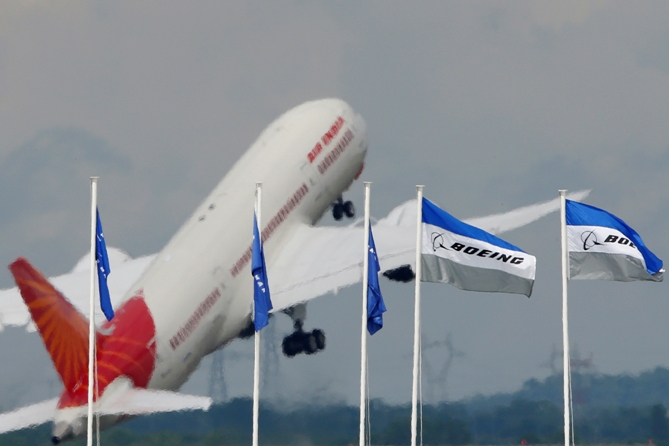
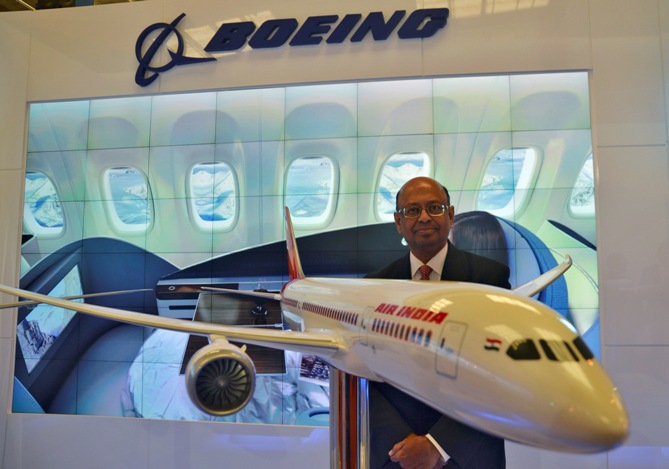
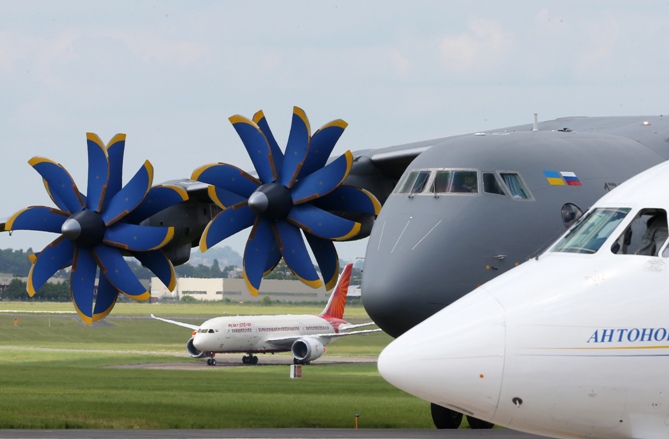
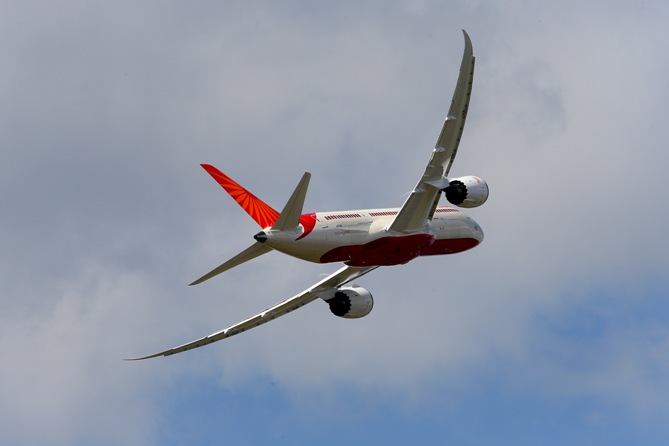
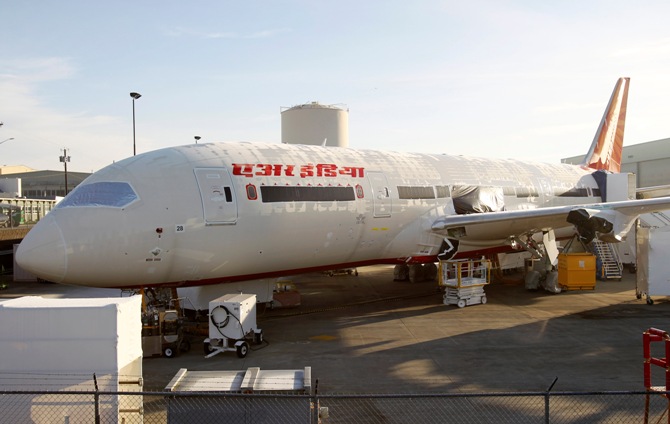
article